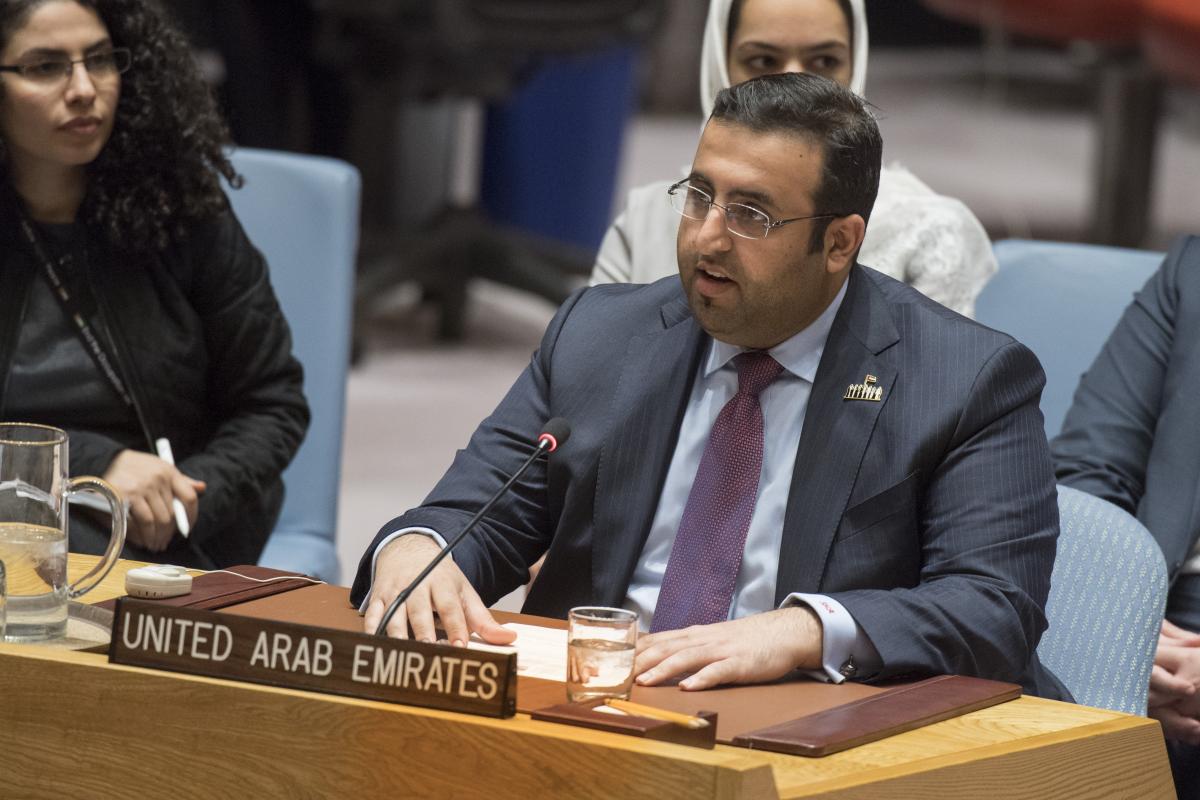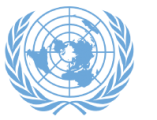NEW YORK - The Arab Group at the United Nations has called on the international community not to recognise any unilateral actions that threaten a two-state solution, and to intensify all international and regional efforts aimed at achieving a just and lasting peace in the Middle East. This came at the UN Security Council Open Debate on the Situation in the Middle East, including the Question of Palestine.
Saud Al Shamsi, Deputy Permanent Representative and Chargé d’Affaires of the Permanent Mission of the UAE to the UN, delivered the statement on behalf of the Arab Group, of which the UAE is chairing for January 2018.
 Al Shamsi recalled Security Council resolution 242 of 1967, which laid the foundation for any acceptable settlement of the Arab-Israeli conflict, particularly Israel’s withdrawal from the occupied Arab territories. He emphasised that this withdrawal, which was also iterated by Arab nations when endorsing Arab Peace Initiative, is the only way to resolve the Question of Palestine.
Al Shamsi recalled Security Council resolution 242 of 1967, which laid the foundation for any acceptable settlement of the Arab-Israeli conflict, particularly Israel’s withdrawal from the occupied Arab territories. He emphasised that this withdrawal, which was also iterated by Arab nations when endorsing Arab Peace Initiative, is the only way to resolve the Question of Palestine.
Al Shamsi noted that the Israeli government has adopted a strategy that aims to make a two-state solution on the 1967 borders practically impossible by executing a systematic plan that includes building illegal settlements on Palestinian and Arab territories. He reaffirmed that at the core of the conflict is Israeli occupation, and that a solution could only be reached if the international community directly and decisively addressed this issue. He stressed that Security Council’s historic resolution 2334 of 2016 is a positive step in ending Israeli occupation.
Further, he stated that the Arab Group firmly rejects and strongly condemns the decision of the United States to recognise Jerusalem as the capital of Israel and to move its embassy.
"We consider this action a serious and dangerous breach of international law, and relevant Security Council and General Assembly resolutions," stated Al Shamsi. Although the policy does not have any legal impact that would change the status of Jerusalem, he said, the Arab Group considers it a clear violation of the Palestinian people, and an attack on both Arab and Muslim nations, as well as on Christians around the world.
He noted that international consensus at the UN on preserving the legal status of Jerusalem is not only aimed at saving the ongoing peace process, but also at protecting international legitimacy and the role and work of the UN in maintaining international peace and security.
On the resolution adopted by the General Assembly on 21 December 2017 calling on Member States to comply with all Security Council resolutions on Jerusalem, Al Shamsi thanked all Member States that voted in favor of the resolution during the last emergency session of the General Assembly.
On behalf of the Arab Group, Al Shamsi called on Member States to refuse to recognise any unilateral measures aimed at changing the character or demographic composition of Jerusalem. He stated that Member States should refrain from establishing diplomatic missions in Jerusalem, pursuant to relevant resolutions of the UN, as well as avoid taking any steps that would prejudice the results of the final-status negotiations, including Jerusalem. Further, he stressed the seriousness of unilateral actions that threaten the two-state solution, and called to intensify efforts at the regional and international levels to achieve a just and lasting peace in the Middle East.
Regarding Israel's intention to run for the non-permanent membership of the Security Council, Al Shamsi noted that Israel is in permanent breach of the Charter of the UN and the principles of international law, which leaves it lacking the minimum conditions for membership at the Council.
Additionally, Al Shamsi expressed the Arab Group’s appreciation for the noble humanitarian work of United Nations Relief and Works Agency for Palestine Refugees in the Near East, in aiding over 5.5 million Palestinian refugees, particularly during the critical time the Agency is facing. He reiterated that the international community should honor their commitments to Palestinian refugees and their host countries, and thanked Member States who are helping reduce the Agency’s budget deficit.
Al Shamsi stressed the urgency of taking all measures to end the Arab-Israeli conflict, and reaffirmed that stability and peace in the region will not be achieved as long as the Israeli occupation of the Palestinian and Arab territories continues.


